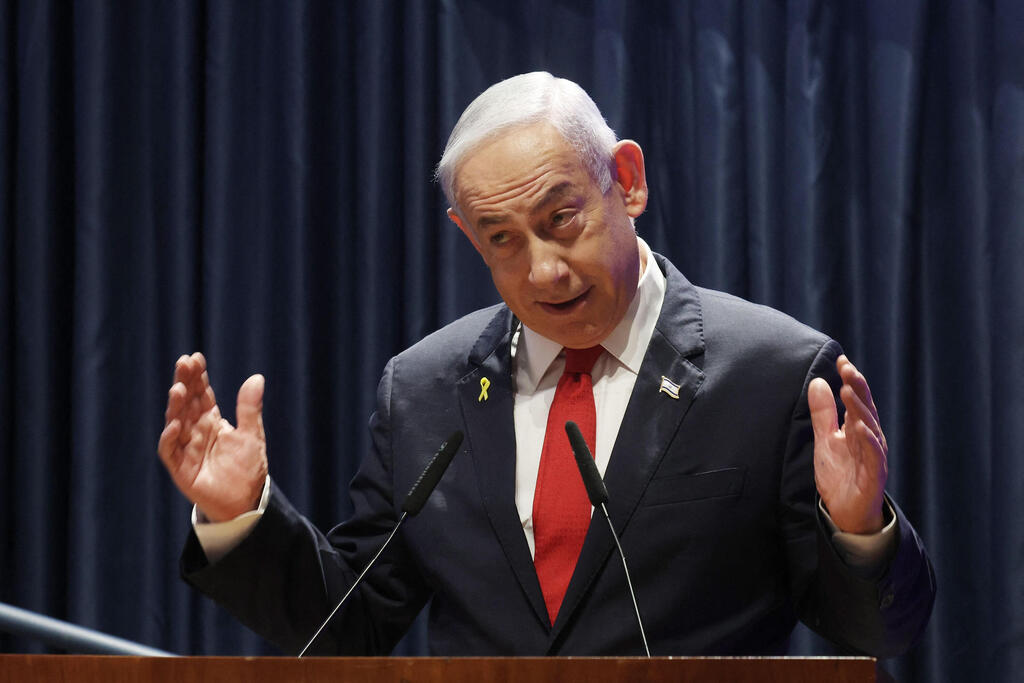Getting your Trinity Audio player ready...
These days, Netanyahu must feel like all his stars have aligned. Hezbollah is worn out, Assad is wandering lost in Moscow, the mullahs in Tehran are trembling with fear, Hamas is floundering in Gaza and all of Israel’s enemies watch anxiously as Netanyahu’s dear friend, Donald Trump, prepares to take office.
Amid a cascade of good fortune came an “extremely friendly, very warm and highly important” phone call with the president-elect. “We talked about the need to complete Israel’s victory,” Netanyahu proudly announced Sunday night.
IDF operating in Jabaliya
(Video: IDF)
For now, it’s time to savor this moment. But soon enough, Netanyahu—and Trump—will have to make some tough choices about how to leverage this wave of luck.
The first choice: a hostage deal. It’s far easier to long for a deal, pray for a deal, even mourn the lack of one, than to face the steep price of making it happen. The price tag includes releasing murderers, halting military operations and, perhaps most heartbreakingly, hearing the returning hostages recount how others could have been saved but weren’t.
The second choice: Iran. The upheaval in Syria, Lebanon and Gaza, combined with the high hopes for the incoming U.S. administration, has created a once-in-a-lifetime opportunity to strike Iran’s nuclear facilities. Significant chunks of Iran’s air defenses have been destroyed; flight paths to the target are clear; and most importantly, Iran’s ability to launch a counterattack—from Lebanon, Syria or even Iran itself—has been dramatically reduced.
Back in 2011, Netanyahu threatened to attack Iran but ultimately balked. Later, he shifted the blame to Israel’s security chiefs and the Obama administration. Now, the reins of power are firmly in his hands. Following the October 7 debacle, Israel’s military and intelligence leadership have been severely weakened, and their dynamic with Netanyahu has fundamentally changed.
In Washington, the outgoing administration is busy tying up loose ends, while the incoming one is eager for some grand gesture to mark its arrival. A daring military strike to dismantle Iran’s nuclear program would hand Netanyahu the total victory he craves.
The opportunity is real, but is it worth seizing?
Iran is a nuclear threshold state only because it has chosen to stop at the threshold—so far. Reports from around the world suggest it has already enriched enough material for several bombs. Its main challenges lie in weaponization—turning that material into usable warheads—and assembly—integrating all the components into a functional arsenal.
Could a military operation obliterate the entire project? That’s far from certain. How would the Iranian regime respond? How would its allies in Russia, China and North Korea react? Would Trump back such a move, or might he cut his own deal with Iran behind Israel’s back?
A leader contemplating a momentous military operation must first ensure stability on the home front. Sometimes, this means forming a broad coalition government, as Levi Eshkol did on the eve of the Six-Day War or as Netanyahu himself did after October 7. Other times, it means taking contentious issues off the table, as Netanyahu did when he paused the judicial reform legislative blitz during the war.
Get the Ynetnews app on your smartpahone: Google Playok. On Sunday night, he gathered coalition leaders to discuss firing the attorney general. Meanwhile, Justice Minister Yariv Levin announced plans to revive the judicial reform in full force. The only thing preventing the collapse of Israel’s democratic system is the ultra-Orthodox insistence on their right to dodge military service. As long as there’s no law cementing their draft exemption, Levin’s constitutional onslaught lacks the majority it needs. Levin and and Shas Party leader Aryeh Deri cancel each other out in a strange balancing act—proof, perhaps, that even chaos has its silver linings.
 Nahum BarneaPhoto: Alex Kolomoisky
Nahum BarneaPhoto: Alex KolomoiskyGet the Ynetnews app on your smartphone: Google Play: https://bit.ly/4eJ37pE | Apple App Store: https://bit.ly/3ZL7iNv
So here’s the situation: either Netanyahu isn’t truly interested in reshaping the Middle East—what grabs his attention isn’t Iranian Supreme Leader Ali Khamenei but Gali Baharav-Miara—or he believes he can have it both ways: that fighter jets will still bomb Tehran even if the judicial system crumbles in Jerusalem, and that reservists will keep scouring Gaza for tunnels even if the government fumbles yet another hostage deal.
In Israel, military service refusal doesn’t exist—at least not during wartime. All the threats of refusal—the most recent coming from former state attorney Moshe Lador—boomerang back onto those making them. When IDF calls, everyone shows up, sometimes even as volunteers.
The only effective way to slow the campaign to dismantle democracy is through the determined efforts of Justice Yitzhak Amit and his colleagues in the Supreme Court, as well as Gali Baharav-Miara and her team in the Justice Ministry. Their daily fight against every draconian law and corrupt maneuver must continue without hesitation and without surrender. The mission is clear: contribute to the war effort as if Simcha Rothman and Levin don’t exist, and fight Rothman and Levin as if there is no war.





